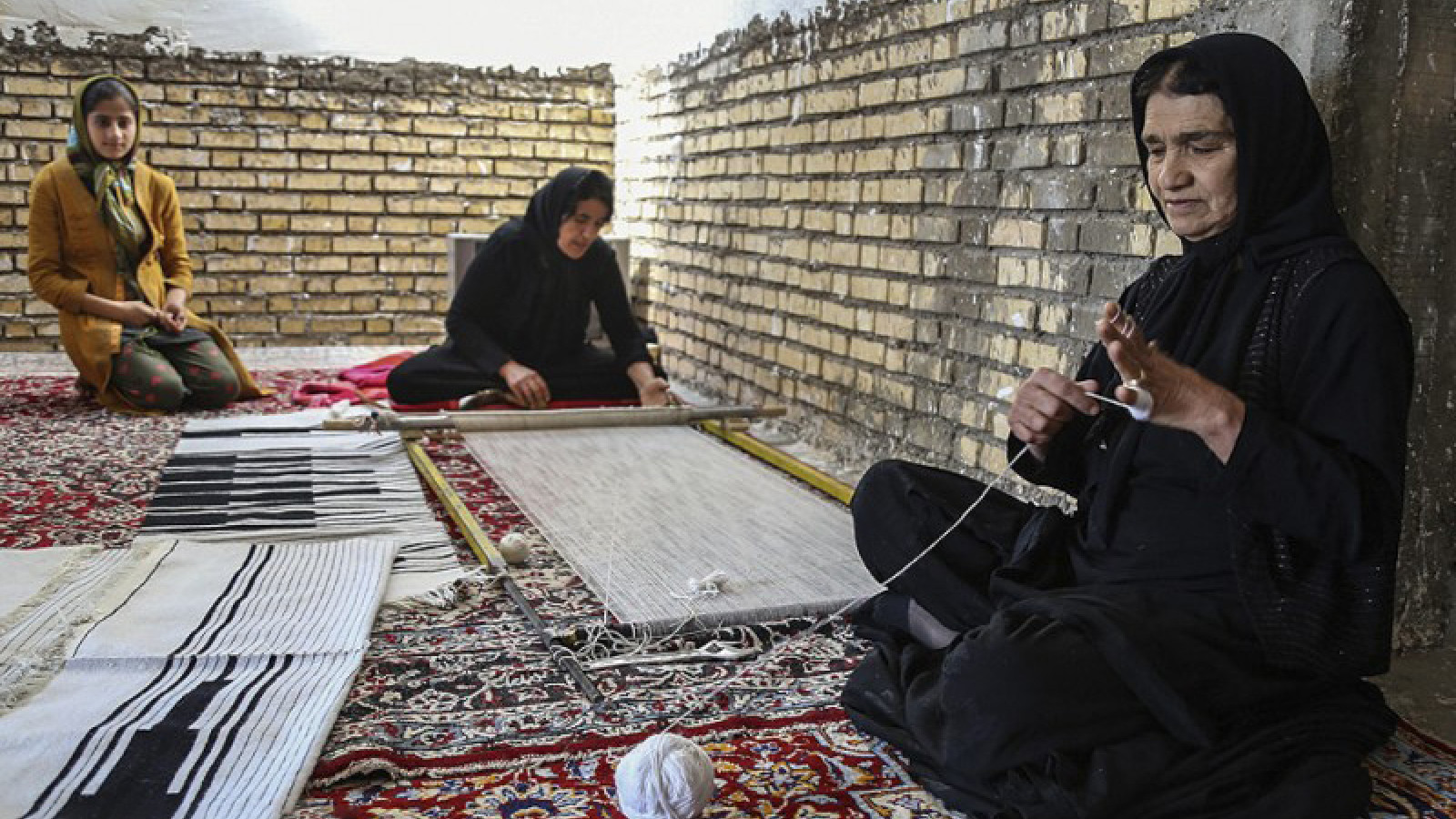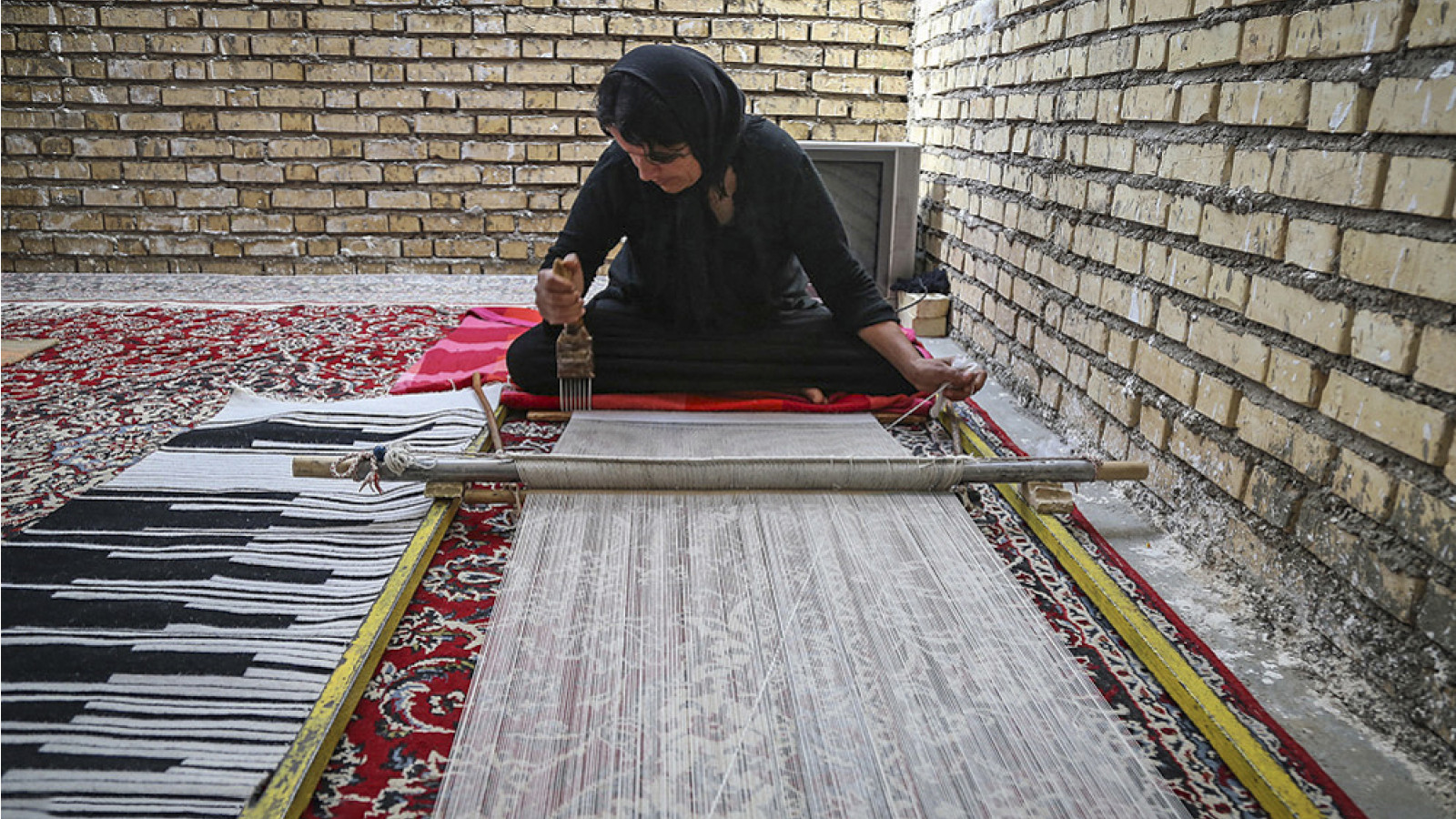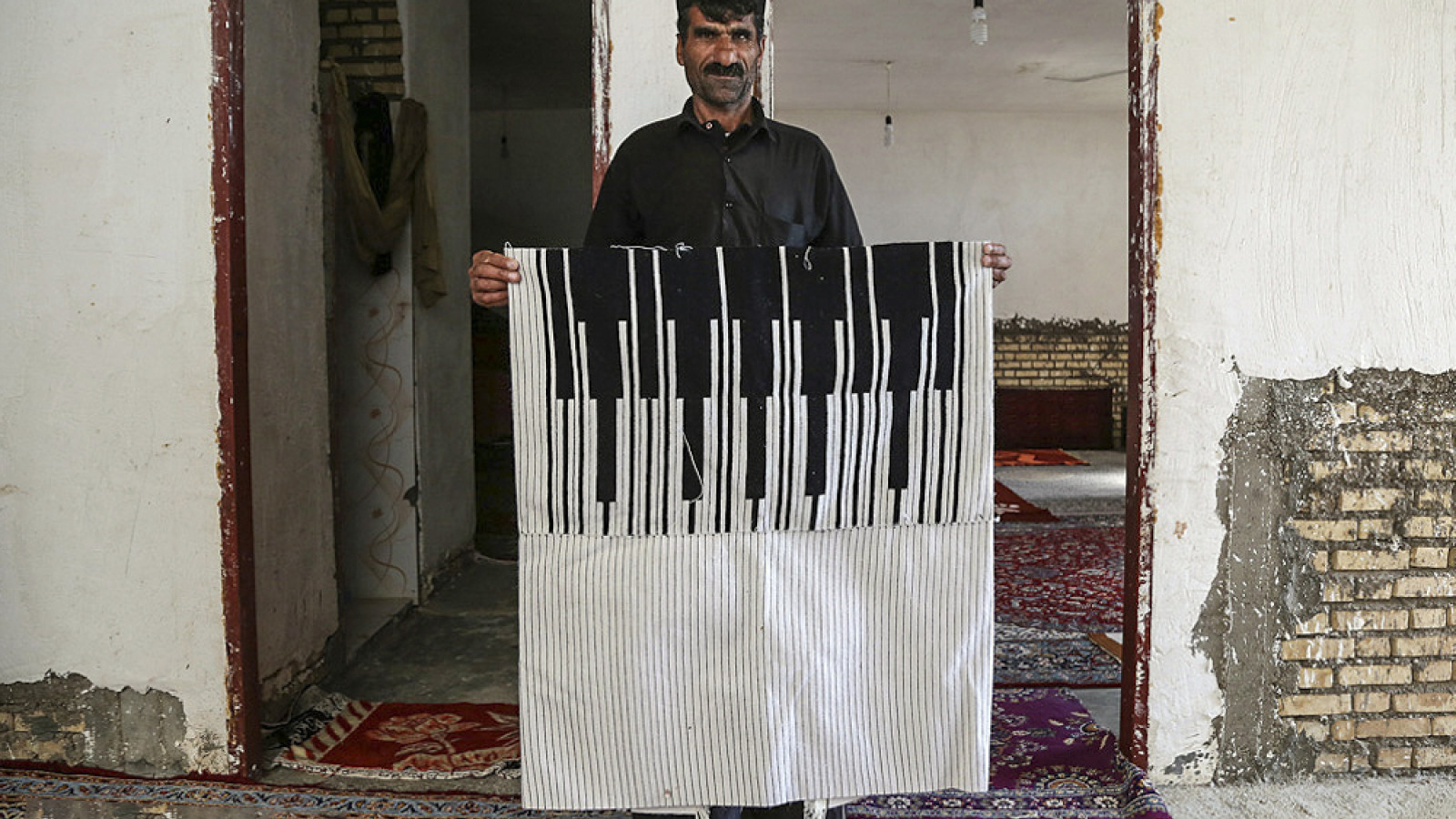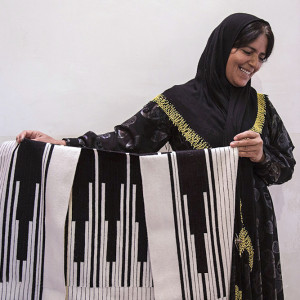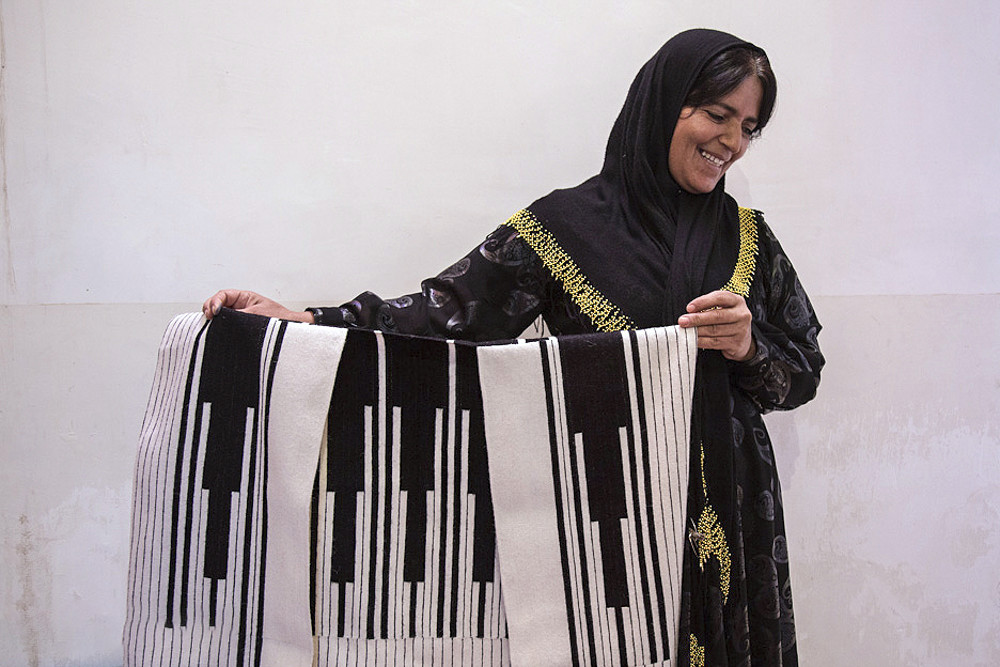
Chogha of Chaharmahal and Bakhtiari
Chogha, also known with names like “Dehghani Abba” or shepherd cloak and “Chokha”, is a clothing that men from Bakhtiari tribe wear over their long-sleeved shirt or coats. This traditional weave is produced by skillful hands of Bakhtiari women and is one of the prominent handicrafts of Chaharmahal and Bakhtiari. This weave is a kind of symbol and signature of the tribe. Chogha is long and sleeveless clothing that reaches the knees. They are made of natural sheep wool and in black and white. Chogha, with their parallel black lines on white background that gives a magnificent beauty to it, is one of the oldest tribal clothing of Iran. Some of the specialists believe that the two colors of black and white of this clothing are in fact symbols of good and evil. Since white lines ascend from down to up, and black lines descend from up to down, they are considered a symbolic victory of good over evil.
To make a Chogha, a kind of textile machinery is used. The sewing of this clothing is done without any premade pattern, sample or design and only from the memory of its maker. To make a medium sized Chogha, about one kilogram of cotton yarn and one kilogram of raw wool is used. For folk people, Bakhtiari Chogha is very valuable. When someone passes away, the men of tribe take off their Chogha as a sigh of grief, attend the weddings in their Chogha and perform the traditional Bakhtiari dance with their handkerchief. There are some examples in the oral literature of Chogha Bafi that emphasizes the importance and originality of this art, like a poem that says “I do not need a Chogha after the rain” meaning that an ill-timely blessing and help is not favored. The word Chogha can be found in parts of chansons that represent nationalist sentiments such as “I am a boy from Bakhtiari tribe and I am wearing Chogha / if the enemy tries to evade my country, I will give up my life defending it”. The Choghas woven in the province of Chaharmahal and Bakhtiari are the best kinds of clothing and each tribe tries to improve it. Today the best kind of Chogha belongs to the Kiarasi Kiumarsi (Morzi) tribe. With it's one hundred and fifty years old history, Chogha has been registered as a national handicraft.
